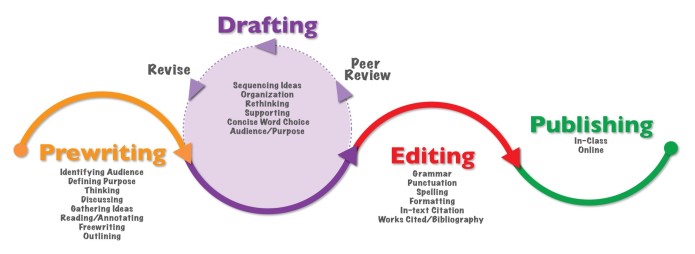Whether we like it or not, communication occurs everywhere. People interact with one another on a daily basis to transfer knowledge and exchange ideas. When used effectively, communication becomes a powerful tool for achieving personal and professional goals.
Over the past twelve weeks, I have developed a greater sense of appreciation for the role of communication in everyday life. Under the mentorship of Prof. Humphreys, I have explored a variety of genres: emails, blog posts, oral presentations, proposals, and reports. I have discovered that, although each of these genres is unique in style, there are several recurring themes in the study of professional communication.
Here are a few of the lessons I’ve learned during the term:

Communication is the art of persuasion.
Talented communicators strive to share their thoughts in a coherent manner. They present logical arguments, build personal credibility, and even stir audience emotions. This was the most interesting lesson I learned in the course, because it introduced me to the fascinating subject of rhetoric. Ever since I learned about ethos, logos, and pathos, I have strived to consciously apply these strategies to my day-to-day communication situations. These lessons have inspired me to delve deeper into this subject area and pursue additional studies in both language and rhetoric.
Less is more.
In many cases, simplicity is more desirable than complexity. One such example is found in the genre of oral presentations. Expert speakers resist the temptation to overwhelm their audiences with too much information. They focus on a core message by applying various rhetorical techniques, such as repetition and figurative language. This principle applies to not only verbal communication, but also visual design. Slide decks and accompanying multimedia should only serve to reinforce a presenter’s points, rather than spearhead the discussion. When used properly, conciseness can signal an elevated level of refinement and sophistication.

Ethical behaviour is rooted in respect.
Ethical communication is all about demonstrating empathy towards the audience and exhibiting respect towards referenced sources. On one hand, the style and substance of a message should be tailored to the relevant stakeholders and context. Doing so will amplify the impact of the content. On the other hand, communicators are responsible for adequately recognizing the work of others. Citations provide due credit to sources of inspiration and information. Ultimately, professional judgement is all about making wise decisions and acting maturely.

Writing is an iterative process.
One common misconception is that writing is a purely creative activity. In reality, there is a systematic approach to producing written work. Getting started is the hardest part; people are often tempted to prematurely pursue perfection in the early drafting stages. The key to successful writing is to employ an iterative editing approach. Ideally, writers should seek to develop their ideas in a collaborative manner, by soliciting feedback from their peers. Although it is difficult to set objective standards of excellence, the process of gradual refinement can lead to higher-quality results.
At the beginning of the term, I made a commitment to not only my professor, but also myself. I promised that I would approach all the lessons in the course with an open mind, to make the most of this learning experience. Looking back, I am proud to have fulfilled this commitment to the best of my ability.
It has been my distinct privilege to learn from and learn with such talented individuals as the people around me. Whether in person or online, I have been honoured to be a part of this close-knit community of scholars, who have generously shared their diverse perspectives. I have learned so much over the course of these few short weeks, and I have grown immensely as a professional communicator.
As much as this is a time to say farewell to the class, I recognize that this is not the end. I pledge to continuously refine my communication skills, by leveraging the techniques that I have learned during this term. I consider myself to be a lifelong learner and a lifelong communicator, and I look forward to engaging in human interactions at school, at work, and beyond.

Thanks for this – I hope all your classmates read it. You are a truly talented communicator.
LikeLike